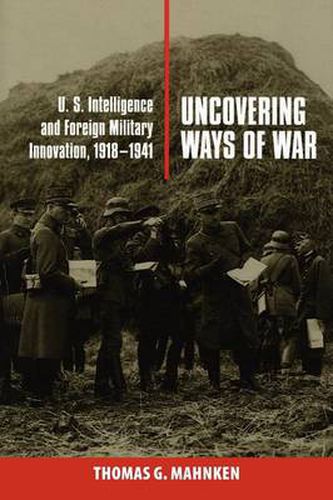Readings Newsletter
Become a Readings Member to make your shopping experience even easier.
Sign in or sign up for free!
You’re not far away from qualifying for FREE standard shipping within Australia
You’ve qualified for FREE standard shipping within Australia
The cart is loading…






Intelligence operations face the challenging task of predicting the shape of future wars. This task is hindered by their limited ability to warn of peacetime foreign military innovation. Using formerly classified sources – in particular, the reports of military attaches and other diplomat-officers – Thomas G. Mahnken sheds light on the shadowy world of U.S. intelligence-gathering, tracing how America learned of military developments in Japan, Germany, and Great Britain in the period between the two world wars.
The interwar period witnessed both a considerable shift in the balance of power in Europe and Asia and the emergence of new ways of war, such as carrier aviation, amphibious operations, and combined-arms armored warfare. American attempts to follow these developments, Mahnken says, illustrate the problems that intelligence organizations face in their efforts to bridge the gulf between prewar expectations and wartime reality. He finds three reasons for intelligence’s relative lack of success: intelligence agencies are more inclined to monitor established weapons systems than to search for new ones; their attention is more likely to focus on technology and doctrine already demonstrated in combat; and they have more success identifying innovation in areas their own country is testing.
Uncovering Ways of War substantially revises the perception of how American intelligence performed prior to World War II. Mahnken challenges the assumption that intelligence regarding foreign militaries had little influence on the development of U.S. weapons and doctrine. Finally, he explains the obstacles these agencies must still negotiate as they seek to understand foreign efforts to exploitthe information revolution.
$9.00 standard shipping within Australia
FREE standard shipping within Australia for orders over $100.00
Express & International shipping calculated at checkout
Intelligence operations face the challenging task of predicting the shape of future wars. This task is hindered by their limited ability to warn of peacetime foreign military innovation. Using formerly classified sources – in particular, the reports of military attaches and other diplomat-officers – Thomas G. Mahnken sheds light on the shadowy world of U.S. intelligence-gathering, tracing how America learned of military developments in Japan, Germany, and Great Britain in the period between the two world wars.
The interwar period witnessed both a considerable shift in the balance of power in Europe and Asia and the emergence of new ways of war, such as carrier aviation, amphibious operations, and combined-arms armored warfare. American attempts to follow these developments, Mahnken says, illustrate the problems that intelligence organizations face in their efforts to bridge the gulf between prewar expectations and wartime reality. He finds three reasons for intelligence’s relative lack of success: intelligence agencies are more inclined to monitor established weapons systems than to search for new ones; their attention is more likely to focus on technology and doctrine already demonstrated in combat; and they have more success identifying innovation in areas their own country is testing.
Uncovering Ways of War substantially revises the perception of how American intelligence performed prior to World War II. Mahnken challenges the assumption that intelligence regarding foreign militaries had little influence on the development of U.S. weapons and doctrine. Finally, he explains the obstacles these agencies must still negotiate as they seek to understand foreign efforts to exploitthe information revolution.